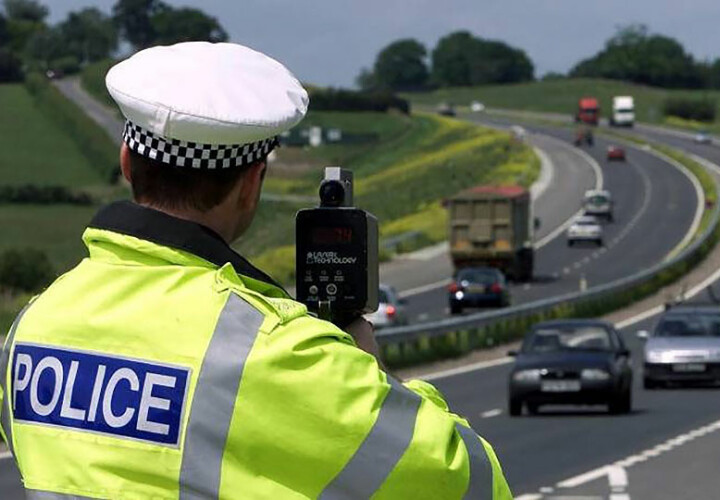Drivers caught speeding excessively from next week will face fines of up to 150% of their weekly wage, as well as increased penalty points and driving bans, when new rules come into force on Monday, 24th April.
Under current laws, for the most serious speeding offences, drivers face a fine of 100% of their weekly wage, but it was announced in January this would be increasing, capped at £1000 – £2500 for motorway offences.
In addition to increased fines, drivers will face a ban between 7 – 56 days, depending on the gravity of the offence, as well as six points on their licence.
When Increased Penalties Kick In
The new penalties outlined above apply for the most serious speeding offences, determined by the speed being travelled vs the speed limit on the road where the driver is speeding.
Across the various limits, fines apply at the following speeds:
- 20 mph limit – travelling 41 mph and above
- 30 mph limit – travelling 51 mph and above
- 40 mph limit – travelling 66 mph and above
- 50 mph limit – travelling 76 mph and above
- 60 mph limit – travelling 91 mph and above
- 70 mph limit – travelling 100 mph and above
The importance of monitoring Contextual Speeding
For fleet operators, safety is a primary focus, with driver performance closely monitored and safety focused programmes and initiatives in place.
Crucially however, operators need to monitor contextual speeding, where speed is compared to legally posted speed limits rather than where a generic speed limit is applied based on road type. A driver might be speeding regularly on a certain road where a reduced speed limit is in place, but where the monitoring in place is using a generic speed limit, such activity would not be identified.
Microlise Safety Module
The Microlise Safety Module is designed to maximise safety, both supporting the reduction of incident rates, but also helping operators to understand incidents when they do unfortunately occur, and take action to reduce future risk.
Part of the preventative element of the safety module is Contextual Speeding, which compares the vehicle’s actual speed against the posted legal speed at a given location. Each time a vehicle’s tracking unit reports in, the reported speed is compared to the legally posted speed at that location, with infringements then recorded.
Where an incident has occurred, the Safety Module offers detailed analysis, capturing various control functions of the vehicle and sending this packaged information through the mobile network to a safe storage area. The parameters are sampled four times a second for 30 seconds before and after an incident and sent along with the details of the vehicle, driver, date and time.
The Safety Module also works in tandem with vehicle cameras, integrated with the telematics solution in place, to offer a real-world view.
Safety at the Microlise Transport Conference
If risk and safety is a key area of focus, come to the Microlise Transport Conference in May, where the Microlise Workshop will feature dedicated sessions on Reducing Risk and Driver Behaviour & Management.
The event is free to attend and takes place on the 17th May at The Ricoh Arena in Coventry.




